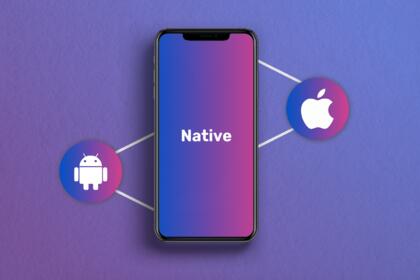
In order to be successful, a business must constantly develop. To do this, you need to use new technologies and various innovations that allow you to be more efficient. To promote a business, it is important to create and launch a mobile application. We will discuss its advantages below.
The growth in the number of mobile device users
The popularity of mobile internet is growing from year to year. Traffic from mobile devices has long exceeded the number of personal computer users. The development of mobile Internet and the emergence of new technologies offer great advantages for businesses, including small ones.
The mobile app is ideal for a phone or tablet
Those sites that were not currently developed for mobile applications or did not adapt to them immediately lose because they are inconvenient to view everything from a small screen. But the mobile application is originally developed so that all the most important things fit on a small screen, and the information is easily read by the user. Taking into account convenience, navigation and many of the application's functions are being developed. These are push notifications, calls, geolocation, these features are specific to smartphones.
You already have a website but want to create a mobile app? You can make an app from the site, this can be a great step for expanding your business.
Constant contact with your customers
The advantage of a mobile app is that it is installed by users who are already interested in your products. For them, you will post information about these products, offer promotions and discounts, and special offers. After installing the mobile application, your site icon will always be on the user's gadget's home screen, which is another advertising move. The user only needs to “tap” on the screen to access and buy your goods and services.
The mobile application is close to your customers 24 hours a day, and it is important to properly configure Push notifications and segment them in order to communicate with different groups of users. The people who have installed the mobile app are your target audience. However, you shouldn't constantly spam Push notifications either; you need to choose the moment when something very important happens in the app.
Customer engagement
With a mobile app, you can actively engage customers in your business. They can participate in promotions, discounts, and use loyalty programs. You can gamify your mobile app and engage customers with game elements. For example, they may receive some discounts for participating in the promotion. Using the mobile application, you can also receive feedback from customers to learn about the work of a particular service and how user interest has changed.
Control of business indicators
The mobile application allows you to clearly monitor e-commerce:
- Collect information about purchased items.
- Their costs.
- Quantity.
You get all the information in real time and track cost and sales performance indicators, and for each division of your holding.
Data security
The mobile application allows you to securely transfer corporate data between employees if the latter comply with security policies that allow them to work remotely. For example, a retail bank sends its data to credit agents who find it very convenient to have data at hand in the app. Thus, the mobile application is a channel for secure data exchange.
Customer system
Mobile applications are created primarily for interaction with customers; they allow you to:
- inform customers about the location of offices and points of sale;
- report on the possibility of purchasing products;
- inform about promotions and discounts, as well as special offers.
The set of functions depends on customer needs; they are designed to solve problems quickly.




